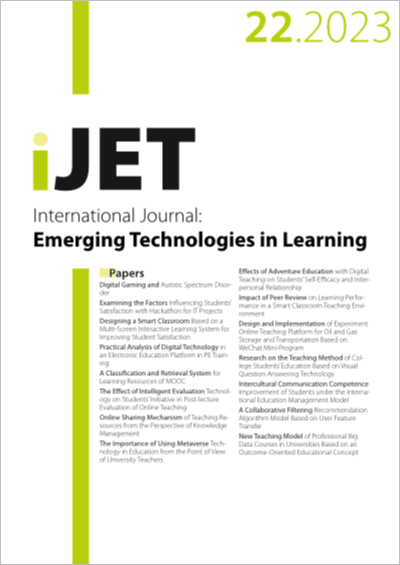Digital Gaming and Autistic Spectrum Disorder
DOI:
https://doi.org/10.3991/ijet.v18i22.34497Keywords:
digital learning, digital games, autism.Abstract
The use of digital games in the educational process promotes interactivity and de-escalation of tensions, promotes active educational models, and offers new possibilities for communication, collaboration, and learning, giving the possibility of introducing the student with autism in a controlled environment that is predictable and without social stimuli to manage the concerned person’s attention and concentration in an activity. This paper aims to present the findings for the use of educational digital games in the field of special education and specifically in the education of people with autism spectrum disorder (ASD).
Downloads
Published
How to Cite
Issue
Section
License
Copyright (c) 2023 Chaidi Irene , Athanasios Drigas

This work is licensed under a Creative Commons Attribution 4.0 International License.



